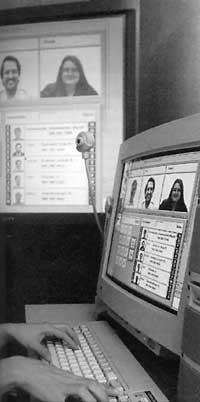Strategies to boost science and technology studies at the seminar “Science and technology in education
2009/06/30 Lakar Iraizoz, Oihane - Elhuyar Zientzia | Kortabitarte Egiguren, Irati - Elhuyar Zientzia

The day began with the conference of María Teresa Nuño, professor of Didactics of Experimental Sciences at the University of the Basque Country. Nuño spoke about secondary science education. He stressed the importance of literacy in science. In fact, the teaching of science brings more than certain knowledge. Understanding science and technology is very useful for making sense and interpreting everyday experience.
In short, according to Nuño, secondary education does not seek to train or train future scientists, but to expand the knowledge of current citizenship.
Then spoke the Dutch Beatrice Boots. Boots is the deputy director of the Dutch platform Beta Techniek. He explained the attempts made by students in the country to attract science, technology, engineering and mathematics. In fact, it focused on the Delta Plan that was launched in 2004 in the Netherlands. The main objective of this plan was to guide more students towards science and technology studies. To do this, in the Netherlands, the centres with the highest number of students in scientific studies were chosen, that is, to increase this number of students. Boots commented that a country, to progress in research and innovation, needs its students to conduct studies related to science and technology.
The next speaker, Jon Irazusta, Vice-Rector of the Basque Country and Multilingualism Area of the UPV, spoke about the teaching of science and technology at the university. He compared the UPV/EHU teaching of the past and future. He stressed that in the past it was a massive and masterful teaching. In a teaching that will become increasingly important in the future, there will be fewer students, more seminars and presentations, more practices, more relationship with the business world, etc. Irazusta said that we are currently in a transition process.

Conference participants (Photo: Rakel López)
Afterwards, Vicente Atxa, CEO of Mondragon Goi Eskola Politeknikoa, presented the Mendeberri project. The Mendeberri project is an educational model that was launched at Mondragon Unibertsitatea in 2000. The aim is for students to acquire additional knowledge from the technician. That is, it wants to foster teamwork, communication, problem-solving, leadership, decision-making, values (participation, responsibilities...) and languages. Basically, the central idea of the project is: “Don’t teach, let them learn.”
For this, among other things, they have reduced the master classes in Mondragon Unibertsitatea, have incorporated more exercises and practices and have promoted teamwork. All of them take into account when evaluating students, not as subjects.
The seminar was attended by the head of market and technology of Tecnalia, Miguel Ángel Sanz, who addressed the relationship of scientists and researchers with the company. According to Sanz, hiring new graduates is essential for technology centers. In this sense, he stressed that “the degree of formation of these graduates does not matter.” That is, the greatest need for technology centers is to have people to hire. In fact, the number of people studying science and technology has declined considerably in recent times and provided guidelines for reversing this situation.
Finally, Pello Uranga, researcher at the CEIT Thermomechanical Treatment Group, intervened. Topic, impact of society on potential researchers. He explained the advantages and disadvantages of being a researcher, highlighting the lack of researchers currently having universities. He also explained what we could do to bring together research and society. Uranga believes that the world of research has to be attractive from the beginning and that research offers serious job opportunities.
This was the second seminar organized by the Elhuyar Laboratory of Scientific Culture, whose objective was to promote scientific culture in society.

Gai honi buruzko eduki gehiago
Elhuyarrek garatutako teknologia




